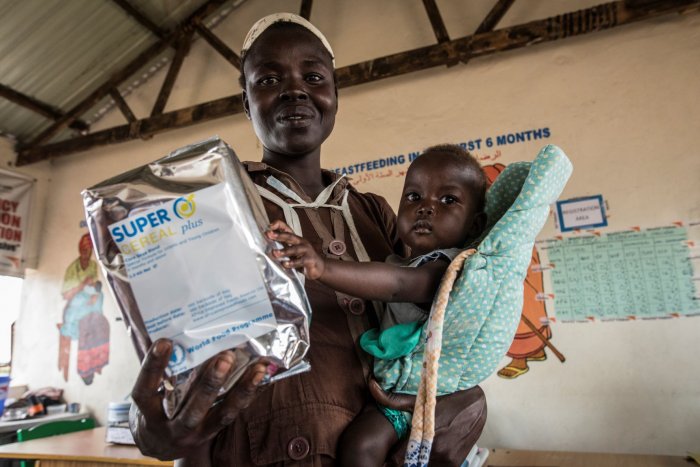The United Nations World Food Programme (WFP) says it will suspend food assistance for more than 100,000 displaced people in parts of South Sudan for three months starting October due to funding shortages.
In a press statement on Monday, WFP said the suspension is part of a broader reduction in food assistance that it announced in April across all camps that will affect people displaced in camps in Wau, Juba, and Bor.
WFP Representative and Country Director in South Sudan Matthew Hollingworth, said, "Drastic times call for drastic measures. We are forced to take these painful decisions and stretch our limited resources to meet the critical needs of people who were on the brink of starvation and now risk slipping back into a catastrophe if their access to food diminishes."
“If funding levels continue to drop, we may have no choice but to make further cuts as the needs of vulnerable communities continue to outpace available resources,” Hollingworth said.
WFP pointed out that the suspension will also affect some 700,000 refugees and internally displaced people who now receive half the caloric contents of a WFP food ration.
Despite receiving generous contributions from donors, WFP says many vulnerable people living in crisis areas continue to suffer from the highest levels of food insecurity and cannot survive without sustained food assistance.
"WFP is prioritizing its emergency, lifesaving food assistance in 10 hard-to-reach counties where people are in an emergency or catastrophic levels of hunger including Pibor, Akobo, Tonj North, Tonj South, Tonj East, Aweil South, Bor South, Twic East, Duk, and Ayod," the statement said. "Mothers and children between six months and two years of age who live in camps will continue to receive nutrition assistance for the prevention and treatment of malnutrition."
Food insecurity in South Sudan has increased in the last few years and currently affects more than 60 percent of the country’s population, according to the UN.




